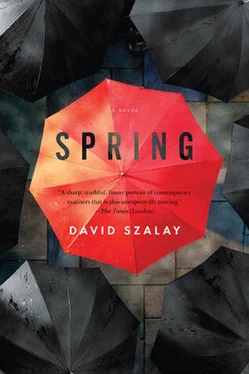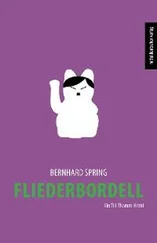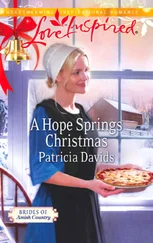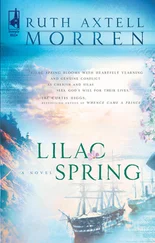The latest phase of their friendship—following the hibernal period around the turn of the millennium—started in 2003. The post-Interspex phase. Plush magazine. The magazine was Freddy’s idea. Not having spoken to him for years, he phoned James to suggest he might like to invest in a magazine he was planning to set up. It seemed at the time that any idiot could set up a ‘lifestyle’ magazine—sex and shopping—and make a fortune. James no longer had any money to invest, though he knew how to find some, and he liked the idea. It was a potent formula—his own entrepreneurial know-how and experience, Freddy’s journalistic flair, and other people’s money. Unfortunately several dozen similar magazines were launched at about the same time, and two years later the few outstanding assets were still being digested in the intestine of the legal system, dissolved in the enzymes of the law. In the end there were just two issues, January and February 2005. The March issue had in fact been written and laid out—it was little more than a load of naked ladies; under financial pressure, the whole project was quickly simplifying into straightforward soft porn. It was never printed on account of the printers insisting on payment in advance.
One of the wiped-out investors was Freddy’s landlord, Anselm. His £50,000 was the only money Freddy himself had managed to raise. It helped that Anselm was under the impression that Freddy was the last surviving heir of Tsar Nicholas II, and that he was involved in a legal struggle over a vast fortune held in Switzerland since the First World War. (Freddy’s Dostoyevskian appearance helped with this—his low brow and sunken eyes, and the way that on hungover days, when he wore a long winter coat, his skin had a mortal yellow tinge.) He insisted that the Russian trove in Zurich was legally his, and Anselm had lent him significant sums to pay ‘legal fees’ and other expenses—fact-finding missions to Switzerland during the skiing season, for instance—in the expectation of a share of the spoils. (Freddy had promised him, in writing, first ten and then twenty per cent.) Nor, while living in Anselm’s house for the past few years, had he ever paid him a penny of rent—the idea was that that too would come out of the Swiss money in time.
The investment in Plush would not. That was an investment, not a loan, and Anselm demonstrated his faith in the existence of the Tsarina’s diamonds by making the distinction. The loss made him dyspeptic and unhappy. He hated losing money. Still, when the end was nigh, Freddy did ask him for another £50,000, to put towards the printing costs of the pornographic March issue. Which was perhaps to push him too far. Sitting in front of the terminals on which for more than twenty years he had tried, with a startling lack of success, to play the stockmarket, Anselm turned on his swivel-seat and looked at Freddy strictly over the top of his spectacles. He said, ‘Fréderic. Do you think I’m a fool?’
Freddy laughed as if the idea was ludicrous.
In fact there was, in Freddy’s opinion, something medieval about Anselm’s foolishness—it was scarcely believable, off the scale, like something out of Chaucer or Boccaccio. So naturally he had slept with his wife, Alison, a former airline stewardess with a sort of saucy appeal. He had been sleeping with her since the first week he lived there. Sometimes he told her that he was passionately in love with her, that he wanted to take her away from that miserable house, where the viscid leaves of the overgrown trees in the garden shut out the light and the hot water trickled from a tubercular Ascot. He told her that he wanted to take her to Zanzibar— Zanzibaaah —where he had spent his sun-kissed youth.
*
Why he did it, he still doesn’t know. It was madness. Its only possible end was disaster. Maybe, he thinks now, on the tube with his haversack, that was what he wanted—to push Anselm to the point of disaster; maybe he was just no longer able to take the foolishness, which had acquired a kind of ear-splitting dissonance. Maybe it wasn’t even that. Maybe it was just the hangover.
Whatever it was, two Saturdays ago he woke up and found Alison—she was watching TV and having her first G & T of the day—and told her to pack a suitcase. They were finally going to do it. They were going to leave, and start new lives. She downed her drink and hurried upstairs to pack. And even then, waiting for her in the hall, leaning tiredly on the paint-thickened, time-stained anaglypta, with the keys of Anselm’s Rolls-Royce in his hand, Freddy knew that this was likely to end in disaster. And he did not even particularly want to do it. That was the strange thing. He knew it was likely to end in disaster, and he didn’t even particularly want to do it, and he still did it. There was a self-destructive element, no question. There was a self-destructive ennui at work. He watched her tiptoe downstairs—Anselm was snoring up there somewhere under his Times —in what she may have thought was some sort of old-school elopement scenario. Except she was already married. She stumbled and fell down the last two steps—perhaps it wasn’t her first G & T of the day after all. He took her suitcase and they slipped quietly out onto Cheyne Walk. It was one of those old Seventies Rolls-Royces, its paintwork—chocolate with a cupreous gleam—sticky with substances that had fallen from the tree under which it was parked.
Two hours later they were still in London, stuck in traffic not far from Shooter’s Hill.
‘Where we going?’ Alison said—she had expected Heathrow and Zanzibar.
‘Dover.’
She laughed. ‘We going to drive to Zanzibar then?’
To drive to Zanzibar in an old brown Rolls—as an idea, it was not without style. However, Freddy said, ‘I thought we’d… spend a few days in Paris first.’
‘Oh. Alright.’
She lit her tenth cigarette of the journey with the car’s chunky cigar lighter. They were both smoking. Smoke poured from the lowered windows. Inasmuch as he had had any sort of plan, it had probably been to spend a few days somewhere—a hotel somewhere. Yes, perhaps Paris. As they finally merged onto the motorway and picked up speed, however, he found that spending a few days with Alison was the last thing he wanted to do. He was already sick of her. She was talking quite a lot now and he wished she would just shut the fuck up. When he put on Radio 3 and found, to his joy—it was exactly what he wanted—Richard Strauss’s Metamorphosen, she listened with a frown for a minute or two. Then she said, ‘Do we need to listen to this? It’s really depressing.’
‘Yes,’ he said. ‘We do.’
In his peripheral vision he could see her fat knees, her stomach straining in her short skirt… She was wearing a short skirt, sheer tights, tall leather boots. Proper mutton-dressed-as-lamb stuff. Freddy was never embarrassed. Nevertheless, he wasn’t particularly looking forward to stepping out with her.
Dover ferry port on an overcast Saturday afternoon in March. As someone once said— Sad like work. The indifferent sea. The stony embrace of the breakwater.
Jouncing on its sluttish suspension the old Rolls freewheeled down the slope, and squeaked to a stop in front of the P & O ticket office. It was while he was in there that Freddy settled on what to do.
With seagull outriders the ugly ship moved slowly away from the pieces of off-white cliff. They spent the two-hour voyage entirely in the on-board pub, the screwed-to-the-floor table pitching and tossing. Somewhere a huge engine was thrumming. It elicited a steady tinkling from the bar. Outside the salt-blurred windows drizzle slicked the green iron decks. The question of who was going to drive when they made landfall in France, since they were now both totally pissed, was not asked. For Freddy it was not pertinent. As the ship entered Calais harbour, he said he had to visit the Gents. And he did visit the Gents—the doors of the stalls swinging and slamming—then he made his way quietly to the foot passengers’ disembarkation point, disembarked, walked to the station and took a train to Paris. He hadn’t had any luggage anyway. He had nothing except his passport and a scrumpled, folded envelope with £10,000 in it—the proceeds of the ‘touch’. He spent the last of it a week or so later on a first-class Eurostar ticket, and a taxi from Waterloo to Cheyne Walk.
Читать дальше












